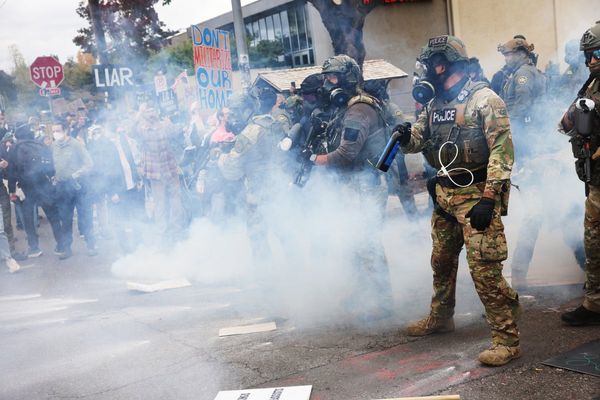WHEN is a protest really a protest? And, perhaps more importantly, when is a protest really worth something?
The unveiling last week of Denmark’s strip for the FIFA World Cup, which begins next month, has caused more controversy than even Scotland’s salmon pink number two decades ago.
The Danes’ kit supplier, Hummel, has unveiled a “toned down” shirt design for this year’s tournament in a protest over Qatar hosting the 2022 World Cup, claiming the tournament has “cost thousands of people their lives”. The three monochrome kits will “make a statement about Qatar’s human rights record and its treatment of the migrant workers”, the manufacturer said.
Will it really?
There is, without question, much to be said about the decision to award Qatar the World Cup. The country’s human rights record is shocking, and the state has faced intense scrutiny over its labour laws and the treatment of migrant workers involved in building the infrastructure for the tournament.
It’s been reported that more than 6,500 migrant workers have died in Qatar since 2010, with almost 40 of those linked directly to World Cup projects.
So there is no doubt Qatar has many questions to answer, and there is much to protest about over its hosting of one of the biggest sporting events in the world.
But is a dull strip the best way to go about it?
Unsurprisingly, the World Cup organisers hit back at Hummel, claiming they have worked “diligently” alongside the Qatari government to ensure “significant reforms to the labour system, enacting laws protecting the rights of workers and ensuring improved living conditions” were made.
It is almost impossible to find anyone to say Qatar hosting the World Cup is a good idea apart from those paid to say otherwise. While criticism has been relentless, a less colourful strip is not going to make the slightest bit of difference.
Indeed, I would bet that by this time next week, the sentiment behind Denmark’s kit will be forgotten.
Admittedly, doing something is better than doing nothing. But it’s easy to protest in this kind of manner when there is no fear of reprisals.
Contrast this with the Iranian national team which, with demonstrations ongoing over the country’s hijab mandate, chose to cover their Iranian logos during the national anthem ahead of their final game before the World Cup last week.
It was a courageous show of support for the protesters and one which will have meant much to the Iranian citizens.
In contrast, many of the protests against Qatar have been hollow.
It would be too much to expect teams to boycott the tournament; unless a decision was taken en masse, it’s unrealistic to think players should take on the responsibility of ensuring mega events do not go to nations like Qatar.
But surely something more can be done than merely toning down a football strip for a few weeks?
AND ANOTHER THING
Over the course of history, Olympic boxing has provided some of the most remarkable occasions in the sport.
From Mohammed Ali winning gold in 1960 to Nicola Adams becoming the first women’s Olympic champion, there are countless moments which would make the list of boxing’s all-time greatest hits.
However, the end of Olympic boxing is, almost certainly, nigh.
Paris 2024 will, in all likelihood, be the last time we will see boxing included in the Olympics for quite some time. It will, perhaps, be the last time.
Last week, the International Boxing Association elected to retain their president, Russian Umar Kremlev.
In doing so, they have chosen not to appease the International Olympic Committee, who wanted rid of Kremlev and have already expressed “extreme concern” over the decision to keep him in post.
The Russian has presided over the governing body as they became embroiled in governance, finance, refereeing and ethical issues and while the IOC are far from perfect in many of these areas, defying the Olympic organisers is a dangerous game.
Boxing has a guaranteed place in Paris 2024, but the programme for 2028 is yet to be finalised. With the IOC so riled, boxing is sure to be excluded which will be calamitous for the sport and most specifically, the athletes themselves.
For so many boxers, the Olympics is not only a stepping stone into the professional ranks but also a significant goal in itself.
Already, many within the sport in Britain have expressed their fears about what exclusion will mean.
It will almost certainly have a crippling negative effect on participation; in the aftermath of London 2012 in particular, where GB was so successful in the ring, participation levels exploded.
With no Olympic platform on which to promote itself, the opposite is almost certain to happen.
Boxing has only itself to blame for this shambles – or more specifically its officials. For years, decades even, the sport has been plagued by rumours of shady goings-on, with some dubious behaviour going beyond rumour having been proved.
What is so sad is that almost always, it is those in blazers rather than the athletes who are at fault. Yet it is the fighters who will suffer the most from this decision.







